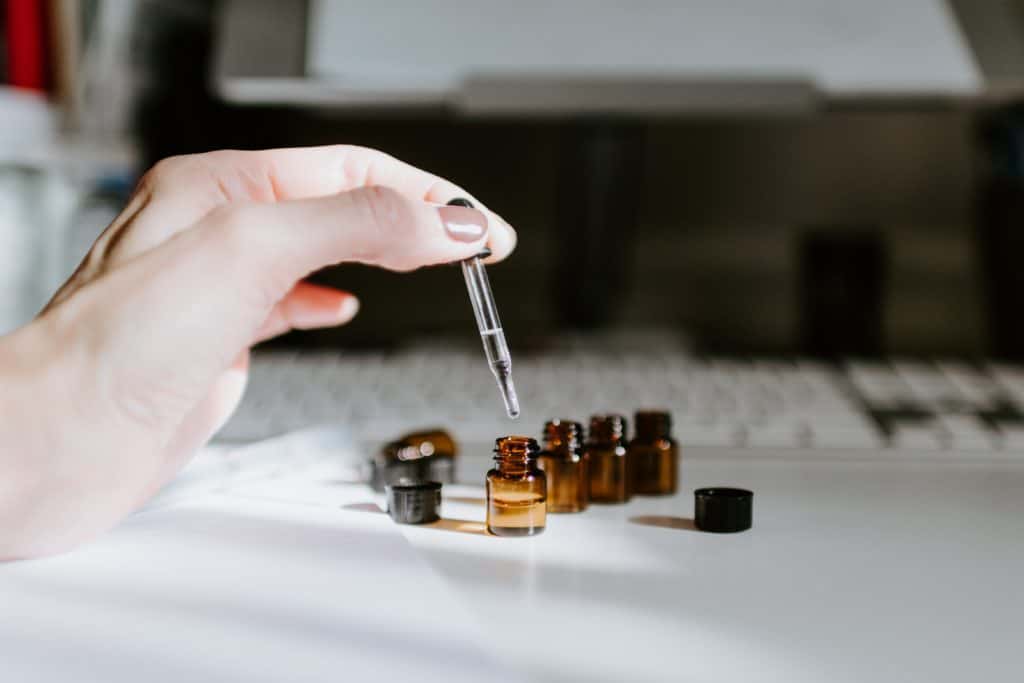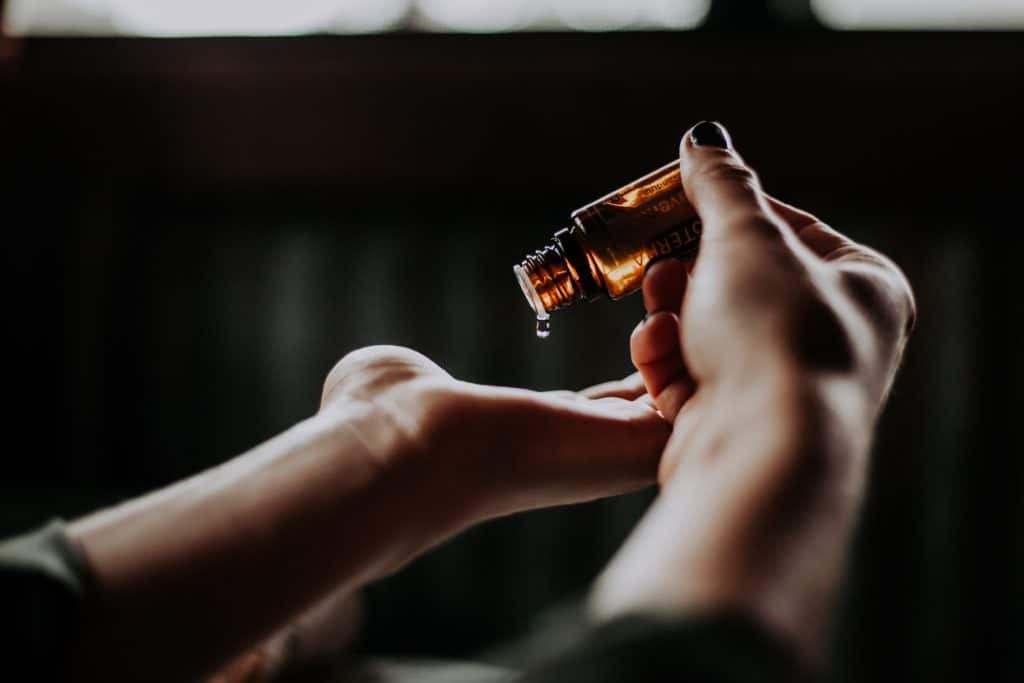Can oregano oil treat SIBO?
Do you experience extreme bloating that makes you think an alien is in your stomach? you feel this painful bloating after every meal or in the middle of the day. Like every other individual, you are getting worried about what is causing such symptoms. You turn to drink more water, drink hot tea after meals, taking some antibiotics but nothing seems to remedy the situation, then you are probably dealing with a SIBO condition.
SIBO will leave you in a state of perpetual discomfort, steal your energy away, gives you frequent nausea, cause you to vomit, diarrhea becomes the order of the day and you start losing weight. The worst happens when you start experiencing skin conditions, like acne, eczema, rashes. There are millions of others out there going through these issues and not just you. Well, I have good news for you, using oregano for SIBO is the best natural treatment with immediate results.
So now is the time to take back your health…
Reading further will enlighten you more about what SIBO is, how does it come about, symptoms you should be aware of, and how SIBO can be properly diagnosed. Above all, you will be able to learn why oregano is such a threat to SIBO, how you can use oregano oil to remedy your situation and take control of your health.
What is SIBO
Small intestinal bacterial overgrowth which is commonly called SIBO is the presence of excessive bacteria in the small intestine (1). It is believed that SIBO conditions are more prevalent with patients dealing with irritable bowel syndrome (IBS) and some other underlying conditions.
On a normal note, the small bowels contain aver small amount of bacteria compared to the big intestine with a diverse ecosystem (1a). When our system is in proper balance, the bacteria in the small bowel plays a vital role in food digestion and the body can easily absorb the important nutrients. But when there is an imbalance in the system, bacteria populate and take control of the small intestine and feed on the nutrients the body needs which may lead to poor nutrient absorption by the body thereby causing IBS conditions that can even damage the stomach lining (2).
What actually causes SIBO?
There are a wide variety of conditions that are believed to be contributing factors for SIBO like aging, dysmotility, diabetes, chronic pancreatitis, structural defects in the small intestine, fistula, injury, scleroderma and intestinal lymphoma (3).
In every system of our human nature exists good or bad bacteria in our intestines. It is very important for these bacteria to balance but some people have too much and if the bad bacteria outweigh the good bacteria, then a health problem can occur. With normal amounts of stomach acid and a good movement of food through our small intestines can help avoid problems caused by bacteria, but individuals with less gastric acid and slow bowel motility are susceptible to bacterial overgrowth (4).
One of the conditions that may cause an improper movement of food in the small intestine is the blind loop syndrome. This is seen when the small intestine forms a loop which causes food to bypass parts of the digestive tract. The blind loop syndrome, therefore, causes a slow movement of food in the system and establishing breeding grounds for bacteria (5).
When we turn to have too many bacteria in our system, they can be present high up our intestines and closer to our stomach. When this happens the bacteria are able to get the “first dibs” on the food we eat instead of us. Now, they available to obtain excess fuel from the food we eat and growth is very possible. Through this process, they begin to produce gas which is what makes us so uncomfortable when dealing with SIBO (6).

Also, certain medications or treatments can cause small intestine overgrowths like proton pump inhibitors, immuno-suppressant treatments, recent abdominal surgery, and celiac conditions. Celiac condition is well known to disturb gut motility, which can lead to inefficient functioning of the small intestines (7).
A study was carried out by the American Journal of Gastroenterology and it concluded over 66 percent of celiac patients with a strict gluten-free diet were tested positive with bacteria overgrowth.
Diabetes, especially type 2 diabetes with improper control are believed to contribute to some gastrointestinal disorders. A study was published was done and published with the Diabetes & Metabolism, concluded that SIBO was present in over 43 percent of patients with chronic diabetes conditions (8).
Aging is also considered to be a contributing factor for SIBO. Due to aging, our digestive tract slows down. It has become a generally accepted point that adults over the age of 65 and above have a 15% prevalence rate of small intestine bacteria overgrowth compared to just 6% of individuals below age 59 and down to 24 years of age (9). A research was done and published in the Journal of American Geriatric Society concluded that about 30 percent of older and disabled adults have small intestine bacteria overgrowth (10).
Individuals dealing with rosacea which is a skin condition characterized by redness and rashes on the face (11) have a higher prevalence rate of small intestine bacteria overgrowth as confirmed by a study done by the University of Genoa in Italy.
Some common signs and symptoms
The signs and symptoms of small intestine bacteria overgrowth are very similar to symptoms of other gastrointestinal conditions.
Some of the symptoms may include;
- Bloating
- Gas
- abdominal pain
- Diarrhea
- Nausea
- Fullness
- Pain after eating high sugar or high fiber foods
- Vomiting
- Loss of energy
- Weight loss
- Malnutrition
- Joint pain
- Rosacea
- Depression
- Rashes
- Acne
- Eczema
- Asthma
Diagnosis
There exist numerous methods for examining and diagnosing small intestine bacteria overgrowth. Some of these methods may include;
Quantitative culture of aspirated small bowel fluid can be used to diagnose small intestine bacteria overgrowth, this method was formally considered the diagnostic gold standard for SIBO. Due to the cost and technical limitation associated with this method makes it less practical for frequent clinical examination (12).
Today, a breath test is very common for the use of diagnosing SIBO condition. Breath tests are done by asking patients to ingest a pre-specified carbohydrate substance before the test can be performed (13). The hydrogen breath test is used to measure the level of gas produced by the bacteria in the small intestine. The test is done to measure the level of hydrogen and methane in the body and it is successful because the one way the human system produces these gases is through the output of bacteria (14).
To perform the breath test, the patient is introduced to a particular diet for a period of about 2 days prior to the scheduled test. The individual will then be presented with a sugar solution of either lactulose, glucose or xylose to feed the bacteria so as to measure the level of hydrogen and methane that has been produced by the bacteria during the process. Through this test, the doctor can determine if you are suffering from SIBO (15) (16)
Using oregano oil for SIBO
Oregano oil is one of the best natural treatments that have far-reaching health benefits due to its outstanding properties. Oregano oil has been used for thousands of years by ancient Chinese healers who used oregano to treat numerous health conditions and even use the herb as a spice for their meals.
Oregano oil is finely extracted from the leaves of the wild origanum vulgare through a unique distillation process. With recent developments about oregano, the “miracle healer” has shown signs of fighting a wide variety of bacteria that pose a threat to our well being. Many people are turning away from antibiotics to more organic and natural methods of treatment with less harm to our system. A variety of studies have place oregano as the next best alternative to harmful antibiotics for a number of health reasons (17).

Oregano by itself is an antibacterial, anti-parasite, anti-inflammatory, anti-oxidant, anti-microbial and anti-viral. A study that was published by the Journal of Medicinal Food in 2011, analyzed the activity of oregano against five different bad bacteria and the antibacterial properties of oregano oil were able to inhibit and fight against all five of the bad bacteria. E. Coli which is a bacteria known to promote gastrointestinal conditions and deadly food poisoning condition was controlled by oregano (18)
Another study, that was published in the Journal of the Science of Food and Agriculture concluded that oregano can be a perfect substitute for synthetic chemicals used in the pharmaceutical industry. Oregano was able to inhibit seven tested strains of bacteria (19).
The active agents and oregano which are known to be carvacrol and thymol, are known to fight against earaches and toothaches or oral conditions caused by bacterial infections.
How to use oregano oil to treat SIBO
Before we jump into how oregano oil can be used for fighting small intestine bacteria overgrowth, it is important to know oregano can be a great treatment but not suitable for all.
In this regard, it is very important to talk with your doctor before using oregano oil in any way for more professional advice. Oregano can be allergic to individuals allergic to plants of the Lamiaceae family which includes, basil, marjoram, sage, and mint
Oregano oil is not advisable to be taken if you are pregnant or you are a nursing mother. Oregano can lead to complications with the fetus and can slow the production process of milk for nursing mothers.
If you are dealing with diabetes oregano is known to lower blood sugar levels which can cause complications with your medication. If you are taking anticoagulants and blood-thinning medications then avoid using oregano as oregano is known to promote the flow of blood in the system. Also, stop using oregano at least 2 weeks before any surgery or operations.
The best way to use oregano oil for SIBO
In other to reap the benefits of oregano in treating your small intestine bacteria overgrowth you will have to use the oil both internally by oral use and externally.
To take oregano oil internally, you must dilute the oil with a carrier oil and never take oregano orally with its full strength. You can mix 2 to 3 drops of oregano to a tablespoon of a carrier oil and take it internally. You can also add 2-3 drops in a glass of water or in a glass of plain milk (No sugar).
Be warned, the taste of oregano can be very strong. If you find the taste too strong for your liking, you can use oregano capsules instead. You can take the oregano capsules 2-3 times a day, but do not exceed over 600mg of oregano a day.
To use the oil externally, you can mix 2-3 drops with a tablespoon of a carrier oil and massage the lower abdomen gently 2-3 times a day. You can also apply the mixture on your lower spine.
Prevention practices for SIBO

- Eat more foods with fewer carbohydrates or fiber, like meats, poultry, fish, eggs, butter, oils, and hard cheeses.
- Cut off foods that you use to eat a lot and start your own “diet test” to find out which foods can cause irritation and avoid them. Once you are doing a “food test”, wait for 3 days before taking on another food. Avoid eating concentrated sugars and sweets.
- Avoid fried foods and fruits, fruit juices and drinks, sweetened foods, canned foods, high fiber cereals, high sugar vegetables (sweet potato, broccoli, okra, tomatoes, green peppers, cabbage, etc), sweetened milk drinks, flavored yogurts. You can take back on these foods if you discover they are not the cause of your condition but if they do, you have no choice than to avoid them.
- Avoid medications and supplements with sugar. Also sugar alcohols (20).
- Exercise regularly to promote and regulate digestive functions.
- Eat plain probiotics rich foods.
- Always take stress relief exercises, like taking walks, meditate, or go for body massage regularly (21).
EndNote
Now you know so much about SIBO and how oregano oil can help you but you will also have to change some major aspects of your life to keep you from experiencing gastrointestinal conditions like SIBO and many others. Learn to eat food that your body can tolerate, use oregano as often as you can to stabilize your system and boost your immune system, exercise more as it also involves the body and the mind. Take walks, go for a massage or meditate to release stress.
It is also important to make sure the oregano oil you use should be 100% organic and therapeutic grade, obtained from the wild origanum vulgare with carvacrol levels above 75%- 82%. Remember to always dilute oregano with a carrier oil before use. Oregano capsules are also available if you can’t stand the taste of oregano. We can heal more by sharing and learning. By sharing your experience with oregano below, you can impact the lives of many.





0 Comments